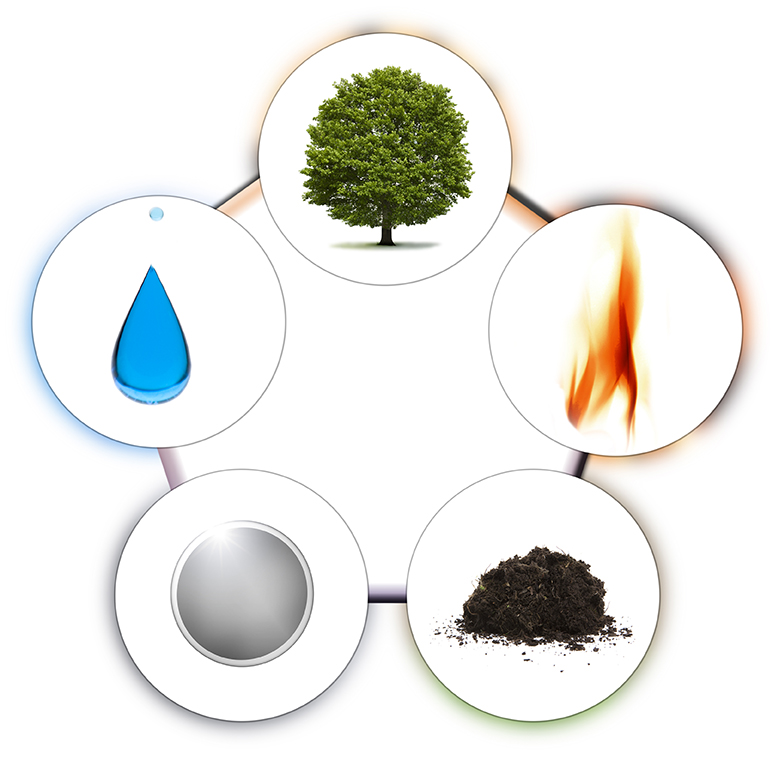Chinese philosophy uses the properties of the Five Elements and their relationship with each other to explain natural phenomena, the law of the movement, and the changes of nature. As such, all things in nature can be classified according to the Five Elements.
Properties of the Five Elements:
Wood: flexing, extending, moving upward and outward
Fire: warm, ascending, flaring upward
Earth: generating, growing, carrying, receiving
Metal: changing, purifying, descending, astringing
Water: moistening, moving downwards, cold, flowing
Classification According to the Five Elements:
In Traditional Chinese Medicine, the visceral organs, other organs and tissues have similar properties to the Five Elements. Thus, they may interact physiologically and pathologically as the Five Elements do.
The Five Element’s relationships with each other can be classified as “mutual promoting” and “mutual restraining” under physiological conditions while “mutual encroaching” and “mutual violating” occur under pathological conditions. “Encroaching” refers to the restraining of one of the Five Elements above normal levels. In contrast, “violating” refers to the restraining of an element by the element it was previously restraining (counter-restriction).
Promoting Relationships:
-
- Wood promotes Fire
- Fire promotes Earth
- Earth promotes Metal
- Metal promotes Water
- Water promotes Wood
Restraining Relationships:
-
- Wood restrains Earth
- Earth restrains Water
- Water restrains Fire
- Fire restrains Metal
- Metal restrains Wood
Each of the five elements also correlates a vital organ within the human body:
-
- Wood - Liver
- Fire - Heart
- Earth - Spleen
- Metal - Lungs
- Water - Kidneys
For example, if stress induces hyperactivity in the liver, this organ may negatively affect the functioning of the spleen and cause digestion problems and lack of appetite (Wood encroaches on Earth). Thus, similar to Yin-Yang, the Theory of Five elements (as applied in TCM) seeks to restore the body’s balance.

